I can help you develop a plan to help your organisation have an impact and communicate about your research – no matter how complex – in an entertaining and accessible way by :
developing plans to help you reach key audiences and stakeholders
crafting strong copy and producing creative digital content
developing strong content strategies and communications plans to help you achieve your goals.
Organisations I have worked with recently:
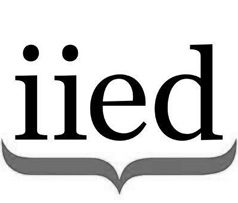
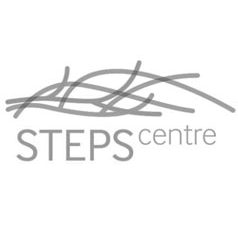
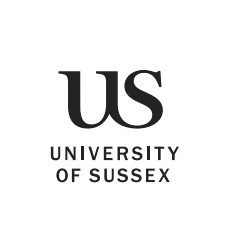
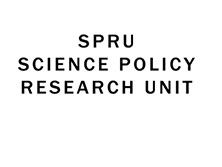
Explore my map below to find out more about me and my work.
Ready to get in touch? Let’s talk.
Email: sfishermurray@icloud.com
I rode a mountain bike around Nobeoka, a city in Kyushu Japan, peddling English to incredibly polite and shy middle school students for the Japan Exchange and Teaching programme.
My hometown is a city where the four seasons roughly break down into damn hot and freezing cold. I studied for a Bachelor of Honours in English literature and History nearby at Queen’s University, one of Canada’s leading universities.
After years in London, the sea and the Downs beckoned – now we hang our hats in Brighton, which is a hub for digital, media and technology businesses.
I moved to Cambridge to be the news editor for two geotechnology magazines: GeoEurope and Mapping Awareness.
I lived in Stoke Newington, meaning ‘new town in the wood,’ for many years. Stokie has kept its village feel with its fabulous vintage clothing shops, independent stores and cafés.
With great live music and the FESPACO film festival, Ougadougou is one of the coolest capital cities, though it reaches 45 degrees Celsius during the dry season. During my two years there, I trained journalists and produced a radio drama series with community radio station Radio Salankoloto.
Top tip – if your plane from Abuja to Kano leaves early without you, don’t take a cab instead. I tried to and, three cars and seven hours later, I felt incredibly lucky to have survived both the roads and the bandits.
Producing this BBC World Serviceradio series gave me an unrivalled opportunity to spend many hours watching Nollywood movies. Often gory, never under-acted, they offer an interesting window into this enormous, chaotic and vibrant country.
Carrying out research with focus groups in Somaliland and Djibouti to evaluate a communications project was really interesting. But getting there involved taking my most terrifying flight ever on a local carrier from Somaliland where the most modern technical items on the plane were people’s mobile phones and the plane’s 1950s wooden light fittings.
I visited during an intense period of conflict in Sierra Leone when battle lines shifted between West African peacekeepers and the Liberian-back Revolutionary United Front. I met an inspirational woman, whose life was shattered by rape and violence, who was rebuilding slowly, with great dignity and forbearance.
Graeme Green may have visited Liberia on a tramp steamer – I took the far-less romantic, modern equivalent – an unregistered airline with Ukrainian pilots flying ancient soviet-era aircraft. Monrovia was facing another siege and still bore the scars of the previous two. I learned something of how people survive endless conflict visiting communities in Sinoe County.
I truly owe my survival in Lagos to my taxi driver, who swerved off a congested bridge leading to Victoria Island not a second too soon – there were robbers with guns on the road ahead.
I interviewed women and girls in the Eastern Congo who had experienced sexual violence. The research was used for reports and campaign materials for Save the Children. The sweet voices of these children from this camp set up to demobilise child soldiers only served to underline the harsh impact this conflict has had on the innocent.
Trying to understand Rwanda felt a bit like unpeeling an onion: just as one layer is unpeeled another is revealed beneath. Months of travel and research with prisoners, survivors and Batwa on the genocide and reconciliation, as part of the Rwandan Reconciliation radio project, still left lots of unanswered questions.
The year 2000 saw a resurgence of conflict in Burundi, with the government forcing farmers into the narrow hill top village centres around the capital Bujumbura to starve the rebels of their alleged civilian support. I covered the work of a radio station seeking to promote peace and build consensus during these uncertain times.
Two weeks of Buddhist meditation sounded easy having just hiked the Annapurna circuit in Nepal. I’m not a (very) chatty person, but fourteen days without speaking on a meditation course proved that I have long way to go before reaching enlightenment. Like every young aspiring travel journalist, I had to make the trip sell, and this Independent article paid for my next month of travels in Rajasthan.
As a Canadian, canoeing should practically be in my DNA, but we don’t normally have to navigate between hippos and crocodiles on a morning’s paddle. I found them distracting as I photographed these elephants bathing in the Zambezi river in Zimbabwe’s Mana Pools National Park, which were later published in Geographical magazine.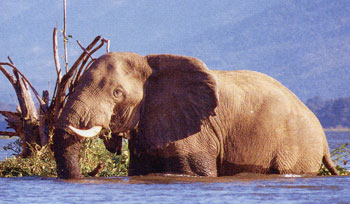

Having spent all my time in west, central and east Africa, I was struck by how different Cape Town felt; it’s beautiful, but I missed the chaotic, noisy bustle of some of those other places. I was there to present a paper on audience research at the Fourth International Conference on Entertainment-Education and Social Change.
I’ve reported from countries torn apart by civil conflicts, but have also looked at how people and societies rebuild in Sierra Leone and Burundi, and led a reconciliation radio project in Rwanda
I have a Masters in Development and Environment from the School of Oriental and African Studies and a Masters in Radio from Goldsmiths. Click on my CV for more detail.
Whether talking about the unequal power relations between men and women, or the way this can be magnified to terrible effect during conflict, gender has been a long-running theme through a lot of my work. For example, how does a wife negotiate with her husband to wear a condom when a woman’s right to safe sex – let alone to refuse it – is not always recognised?
This four-part documentary series broadcast on the BBC World Service explores Nigerian popular culture – it’s music, photography, independent radio stations and growing film industry.
I’ve been producing online content since 2007. See my online work or read my blog.
I’ve worked in a range of print media roles: freelance journalist, the news editor of two geotechnology magazines and the writer and editor at Save the Children, editing flagship research reports and writing the organisation’s Annual report.
My work developing, writing and producing educational radio dramas is mapped out above.Find out more.
I’ve written and produced a number of radio packages and documentary series for the BBC World Service from Africa.
No one communications project is going to change the world. Large-scale impact can only be achieved when you try to understand what’s worked and what hasn’t. I’ve written these papers to share lessons with others.
